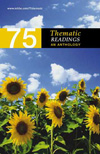
Patricia Williams |  |
Patricia WilliamsPatricia Williams, "Gilded Lilies and Liberal Guilt" Patricia Williams (1951- ) was born in Boston, and earned a B.A. from
Wellesley College in 1972 and a J.D. from Harvard University Law School
in 1975. She's been a city attorney in Los Angeles, and has taught law
at Golden Gate University, the University of Wisconsin, Madison, and Columbia
University. She's written the books The Alchemy of Race and Rights:
Diary of a Law Professor (1991), The Rooster's Egg: On the Persistence
of Prejudice (1995), and Seeing a Color-Blind Future: The Paradox
of Race (1998). Her work frequently appears in periodicals such as
The Nation, Callaloo, the New York Times, and the
Chronicle of Higher Education. "Gilded Lilies and Liberal
Guilt," in which Williams uses a close look at her family history
to ask some question about the relationship between politics and business,
is an excerpt from The Alchemy of Race and Rights. | QUESTIONS FOR DISCUSSION | CONTENT - What document comes into the author's possession that involves
her "great-great-grandmother"?
- What does the word chattel mean?
- Who is Austin Miller?
- What happens to the author's great-great grandmother's children?
- What ultimately happens to Williams's great-great grandmother?
- Explain the title of this piece.
STRATEGY AND STYLE - Examine the imagery that starts in paragraph six and is repeated
in paragraphs seven and eight. Describe the two images. What do they
have to do with the author's view of the relationship between her great-great
grandmother and Austin Miller?
- Discuss this piece as a cause and effect essay. What major causes
and what major effects does the author describe? How does she support
her main points? Do any of the effects in turn become causes?
- Take a look at the use of parentheses in paragraph three. What
information is provided in parentheses? In whose voice? What's particularly
effective about this usage given their role in that family?
| ENGAGING THE TEXT | - What is the role of guilt in your life? Does it stem from your
politics, or from somewhere else? How can you tie in your feelings in
this regard to your reading?
- How does "family legend" function in your life? Can you
find anything similar in the important stories and accounts in your
family to that which the author describes as important in hers?
| SUGGESTIONS FOR SUSTAINED WRITING | - List the four oppositions the author spells out at the beginning
of paragraph six. Choose the one that interests you the most, and write
an essay dealing with how this issue has changed over the time the author's
great-great grandmother was alive to the present day.
- In the first paragraph Williams speaks of "the intersection
of commerce and the Constitution." What are some of the major links
between business and American politics? Use your reading and your own
observations, narrow this topic, and write an essay about this intersection.
| FOR FURTHER RESEARCH | Try to trace your family tree back to one of your great-great grandmothers.
Did you make it all the way back? If not, where did you get stuck? How
might you be able to get over this? In any case what did you learn? How
did it deepen your appreciation of this reading? | WEB CONNECTION | To pursue issues related to African American genealogy further, take
a visit to this site that is devoted
to the topic. There, you'll find all sorts of information and links to
things like census records, cemetery transcriptions, and searchable databases. | LINKS | Biographical Here's Williams's homepage
from the Columbia Law School, where she's the James L. Dohr Professor.
You'll find some biographical information there, as well as a photo. This is her biography
from the MacArthur Foundation, an institution from which she won a "genius
grant" in 2000. How does the information you've found here differ
from that found on the page above? Why, do you think, it's different?
Bibliographical Ready for some more of Williams's work, this time in etext? Click
here
and you can read an excerpt from Seeing a Color-Blind Future.
It's taken from chapter one, "The Emperor's New Clothes." This page
contains information about a piece Williams wrote called "The Underground
Boy" for Callaloo. What would be the most efficient way
for you to get your hands on the complete essay?
Cultural Interested in writing about slavery in the U.S.? This chronology
of U.S. statutes concerning the topic is a useful research tool from
the Yale Law School. If you'd like to put Williams's work into a broader political context,
here is a very good general
article about the Civil Rights Movement. It features multimedia
links and will help get you started on your research. An interesting way to see the scope of Williams's work is to browse
through the list of her citations at the Library
of Congress. What did you find there that you didn't know before
your visit?
|
|
|
|